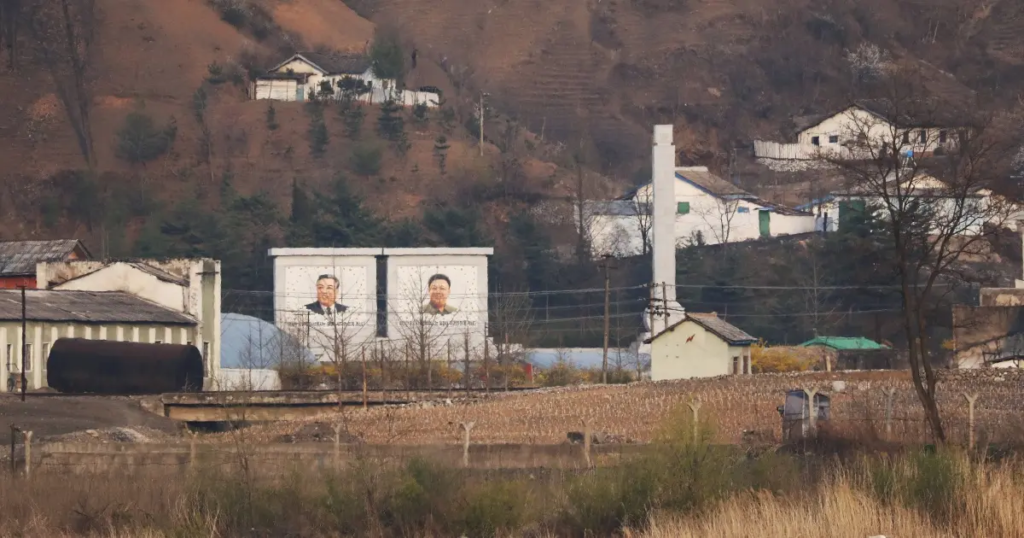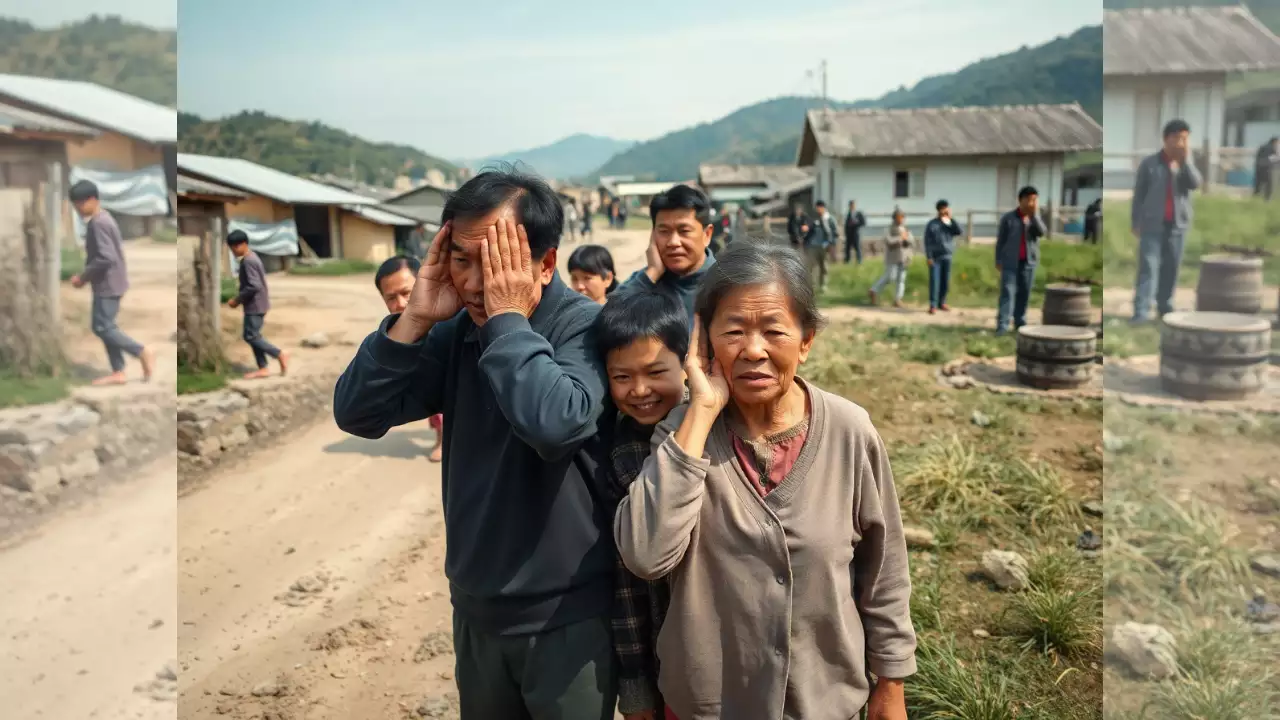The ongoing hostilities between North Korea and South Korea have taken an unusual and deeply troubling turn for the residents of Dangsan village, a small border settlement in South Korea.
Pyongyang has escalated its psychological warfare tactics, utilizing deafening loudspeakers to blare unsettling and bizarre noises, disrupting the lives of the villagers. With a history rooted in the unresolved tensions of the Korean War, this latest development underscores the growing divide between the two nations.
Psychological Warfare: Noise as a Weapon
The eerie symphony emanating from the North’s loudspeakers includes sounds like giant gongs, wolves howling, metal grinding, and ghostly screams. These noises are designed to penetrate the peace of Dangsan village, where many residents, predominantly elderly, are struggling to cope.
For the village’s 354 inhabitants, the relentless barrage has caused sleepless nights, headaches, and even physical effects on livestock, such as miscarriages in goats.
Residents like An Mi-hee describe the experience as “driving us crazy.” The noise pollution has forced people to take extreme measures, such as sealing windows with Styrofoam and avoiding outdoor activities.
Read : Israel Shares Video Allegedly Showing Hamas Torturing Palestinians: Watch
While North Korea has previously engaged in propaganda warfare through music and announcements, this shift to unnerving and chaotic sounds reflects a sinister evolution in tactics.
⚡️Psychological warfare:
— The Global Monitor (@theglobalmonit) November 16, 2024
North Korea has been playing loudspeakers along the border, blaring deafening sounds for up to 24 hours a day to anger South Korean border residents. pic.twitter.com/nZQXswN2zH
This form of psychological warfare, often termed “noise bombing,” has become a tool for North Korea to unsettle its southern neighbor. Experts believe this strategy aims to highlight the vulnerability of South Korea while demonstrating Pyongyang’s ability to disrupt life on the other side of the border without conventional weapons.
The Historical and Political Context
The origins of this hostility can be traced back to the Korean War (1950-1953), which ended with an armistice rather than a peace treaty, leaving the two Koreas technically at war. Over the decades, tensions have flared periodically, with North Korea adopting increasingly aggressive stances under the leadership of Kim Jong-un.
His regime has severed diplomatic communication with Seoul and Washington and intensified military provocations, including missile tests and demolishing inter-Korean infrastructure.
South Korea, under President Yoon Suk Yeol, has sought to counter these measures by advocating for the spread of freedom and information to break North Korea’s information blackout. However, this ideological push has further antagonized Pyongyang, leading to more aggressive actions like noise bombing and GPS signal disruptions.

The lack of a peace treaty and mutual distrust has perpetuated a cycle of provocation and counter-provocation. According to Koh Yu-hwan of the Korea Institute, the only viable solution lies in a recommitment by both Koreas to agreements that discourage hostile actions, including slander and psychological warfare.
Impact on the Village and its Residents
Dangsan village, nestled near the demilitarized zone, has become an unintended battleground in this geopolitical conflict. For the elderly population, who have lived through decades of inter-Korean tension, the noise bombing is a new and distressing challenge. Many, like An Seon-hoe, long for the days when North Korea’s propaganda consisted of “old insults” and patriotic songs rather than the current cacophony.
The psychological toll on residents is significant. Insomnia, anxiety, and stress are rampant. The noises, which are often sudden and unpredictable, keep villagers on edge, unsure of when or if they will stop. Even animals have been affected, with farmers reporting increased incidents of miscarriages among livestock, which they attribute to the continuous noise.
Efforts to mitigate the impact have been largely insufficient. While insulating windows and staying indoors provide some relief, they do not eliminate the problem. Children have been particularly affected, with outdoor activities becoming rare due to the noise.

South Korean politicians have visited the village to express solidarity, but residents remain skeptical about long-term solutions. The lack of concrete measures to counter North Korea’s tactics has left them feeling isolated and helpless.
A Call for Resolution
The plight of Dangsan village underscores the broader consequences of the unresolved conflict between North and South Korea. While geopolitical tensions often manifest at the macro level, the residents of border areas bear the brunt of these hostilities in their daily lives.
North Korea’s recent actions, including the demolition of cross-border infrastructure and the disruption of GPS signals, highlight its commitment to escalating tensions. For the villagers of Dangsan, these moves have exacerbated their already precarious situation.
Experts argue that meaningful dialogue between the two Koreas is essential to address such issues. However, with both nations entrenched in their positions, achieving a resolution seems increasingly unlikely. Until then, the residents of Dangsan must endure the relentless noise bombing, a stark reminder of the human cost of political and military strife.

